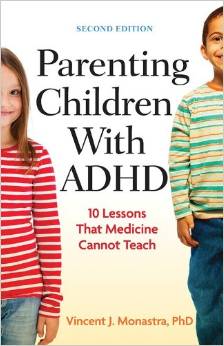Reading Resources
Books can be a huge part of any therapeutic journey. Below are books that I have read and recommend as a supplemental aspect of a therapeutic journey. These suggestions are not meant to replace professional guidance.
Books on Child Mental Health
Beyond Consequences, Logic, and Control: A Love Based Approach to Helping Attachment Challenged Children with Severe Behaviors by Heather Forbes
Beyond Consequences, Logic, and Control covers in detail the effects of trauma on the body-mind and how trauma alters children's behavioral responses. The first four chapters help parents and professionals clearly understand the neurological research behind the basic model given in this book, deemed, 'The Stress Model.' The next seven chapters are individually devoted to seven behaviors typically seen with attachment-challenged children.
The Whole-Brain Child by Daniel Siegel and Tina Payne Bryson
In this pioneering, practical book, Daniel J. Siegel, neuropsychiatrist and author of the bestselling Mindsight, and parenting expert Tina Payne Bryson offer a revolutionary approach to child rearing with twelve key strategies that foster healthy brain development, leading to calmer, happier children.
Brainstorm: The Power and Purpose of the Teenage Brain by Dan Siegel
Between the ages of twelve and twenty-four, the brain changes in important and, at times, challenging ways. In Brainstorm, Dr. Daniel Siegel busts a number of commonly held myths about adolescence—for example, that it is merely a stage of “immaturity” filled with often “crazy” behavior. According to Siegel, during adolescence we learn vital skills, such as how to leave home and enter the larger world, connect deeply with others, and safely experiment and take risks.
I Love You Rituals by Becky Bailey
I Love You Rituals offers more than seventy delightful rhymes and games that send the message of unconditional love and enhance children's social, emotional, and school success.Winner of a 1999 Parent's Guide Children's Media Award, these positive nursery rhymes, interactive finger plays, soothing games, and physically active can be played with children from infancy through age eight.
Books on ADHD
Parenting Children with ADHD: 10 Lessons that Medicine Cannot Teach by Vincent Monastra, PhD
Over the past 30 years, Dr. Monastra has treated more than 15,000 clients who have ADHD. In this indispensable book he shares the knowledge he has gained. Engaging and straightforward, the book is directed at parents of children who have, or might have, ADHD. In a conversational style, Monastra offers a series of sequential lessons, beginning with the causes of ADHD and the most common medical treatments.
Books on Identity
Alex as Well by Alyssa Brugman
Alex is ready for things to change, in a big way. Everyone seems to think she's a boy, but for Alex the whole boy/girl thing isn't as simple as either/or, and when she decides girl is closer to the truth, no one knows how to react, least of all her parents.
Undeterred, Alex begins to create a new identity for herself: ditching one school, enrolling in another, and throwing out most of her clothes. But the other Alex-the boy Alex-has a lot to say about that.
Books on Depression
Conquering the Beast Within by Cait Irwin
For anyone in the clutches of the frightening beast that is depression, this book can help. In vivid words and images, Cait Irwin shares her own compelling story: how she struggled with clinical depression at age fourteen, was hospitalized, sought therapy, found the right medication, and successfully made the long, arduous climb back to good health. This powerful volume shares an inspirational message with all who are waging their own battles with depression: There is a way out.
Books on Bipolar Disorder
An Unquiet Mind by Kay Redfield Jamison
Dr. Jamison is one of the foremost authorities on manic-depressive (bipolar) illness; she has also experienced it firsthand. For even while she was pursuing her career in academic medicine, Jamison found herself succumbing to the same exhilarating highs and catastrophic depressions that afflicted many of her patients, as her disorder launched her into ruinous spending sprees, episodes of violence, and an attempted suicide. Here Jamison examines bipolar illness from the dual perspectives of the healer and the healed, revealing both its terrors and the cruel allure that at times prompted her to resist taking medication.








